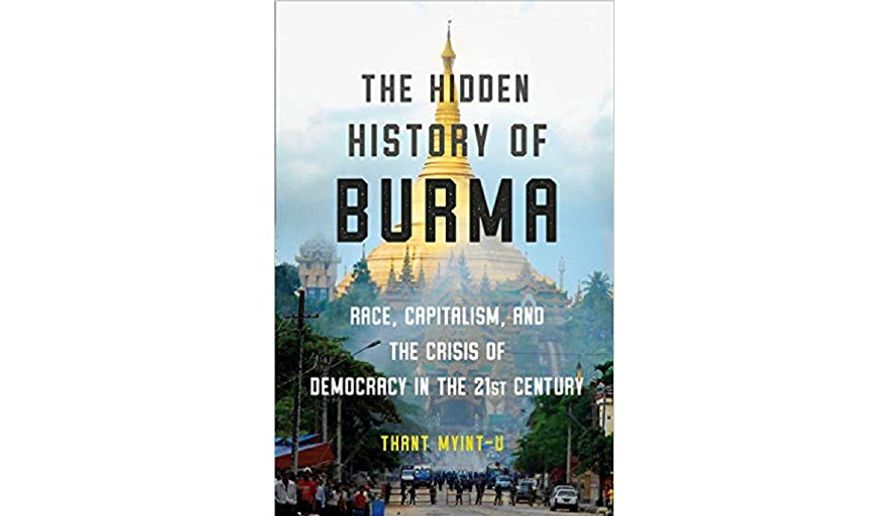OPINION:
Earlier this month, Myanmar’s leader Aung San Suu Kyi appeared before the International World Court of Justice in The Hague, calling on it to dismiss an accusation of genocide against her country’s Rohingya Muslim minority. She argued that her country’s justice system should be given the opportunity to resolve these issues.
Myanmar (formerly known as Burma) is accused of violating the 1948 Genocide Convention by having its military allegedly engage in atrocities in its counterinsurgency campaign against the violent rebellion by the country’s Muslim minority. Known as Rohingya, these Muslims live in the Rakhine state, situated in the western coast by the border with Bangladesh. The conflict has led to the deaths of more than 100,000 Rohingya, with some 900,000 becoming refugees in Bangladesh.
What is striking about Ms. Suu Kyi’s defense of her country’s alleged genocide against the Rohingya (who reportedly include Islamist terrorist groups) is that she was once hailed in Western countries for her decades-long struggle for liberal democracy and human rights in Myanmar, for which she was awarded the Nobel Peace Prize in 1991 — while being held under house arrest by the country’s military rulers from 1989 to 2010.
Ms. Suu Kyi was born into the country’s elite as the daughter of the legendary Aung San, who had founded the modern Burmese army and negotiated the country’s independence from the United Kingdom in 1947. He was subsequently assassinated by his rivals the same year.
Like Ms. Suu Kyi, Mr. Myint-U, the author of this fascinating account of Myanmar’s crisis-filled history, also grew up as part of the country’s elite, with his grandfather, U Thant, prominent in Burmese politics in the 1950s, after which he became secretary-general of the United Nations.
Part memoir of the author’s life and activities — he spent most of his life living overseas due to the country’s military dictatorship — this book takes its strength from the author’s expertise on development and conflict resolution at the United Nations and other NGOs, especially in his role as a leading diplomat who helped bring democracy to Myanmar.
Myanmar is a country of about 55 million people, squeezed between China and India, and bordering Bangladesh and Thailand. It is one of the poorest countries in Asia, with one of the biggest illicit narcotics industries in the world. It is prone to devastating natural disasters (in 2008, more than 120,000 people died in a single day due to a cyclone), and its education and health care systems are among the least funded and developed in Asia.
It is also a devoutly religious society, in which more than 85 percent of the population follows Theravada Buddhism, a conservative tradition that is pervasive in the region.
What is most troubling, the author explains, is that from 1962 to 2010, Burma was governed by a military dictatorship that isolated the country from the outside world, while promoting a corrupt, predatory economy that enriched the military-related elites. Its imprisonment of Ms. Suu Kyi and lack of political freedoms led Western governments to impose crippling political and economic sanctions on the country.
The impact of these sanctions, as well as other external pressures, persuaded the military rulers to change course. Following the release of Ms. Suu Kyi from house arrest, and the introduction of a new constitution, democratic elections were held in November 2015, with the Suu Kyi-led National League for Democracy (NLD) winning a large majority of parliamentary seats. Although Ms. Suu Kyi could not constitutionally become president because two of her children live abroad and are not Myanmar citizens, she became the government’s de facto leader.
What appeared to Western governments as quantum changes in Myanmar, however, turned out to be a “fairytale,” the author notes, because they neglected to do “their homework to really understand what was driving the positive momentum and how best to keep it going.”
Burma remained a state that does not fully control its territory, a society divided on who belongs and who does not, with ethno-religious identity-mobilization the way to gain political advantage, resulting in “no vision of Burma as a genuinely multiracial, multicultural place.”
As the country’s political leader, Ms. Suu Kyi rarely meets with the country’s news media, has little contact with civil society organizations and has no clear economic agenda, the author observes. This has resulted in insufficient reforms that “legitimized inequalities and unleashed a maelstrom of identity-based conflicts for which society was ill-prepared.”
The author concludes, “The warning signs are flashing. The two most combustible elements on the Burmese political landscape remain race and inequality. They are now being mixed together with immature democratic institutions, a blind faith in free markets, multibillion-dollar illicit industries, and an uplands awash in weapons. We risk a failed state in the heart of Asia.”
With Burma “running out of time,” the author calls for a “radical agenda” to transform the country based on a “new project of the imagination.” If such an agenda is accompanied by resolution of the Rohingya conflict, Ms. Suu Kyi could be welcomed again in the world’s capitals as a stateswoman.
• Joshua Sinai is a Washington, D.C.-based consultant on counterterrorism issues.
• • •
THE HIDDEN HISTORY OF BURMA: RACE, CAPITALISM, AND THE CRISIS OF DEMOCRACY IN THE 21ST CENTURY
By Thant Myint-U
W.W. Norton & Company, $27.95, 304 pages




Please read our comment policy before commenting.